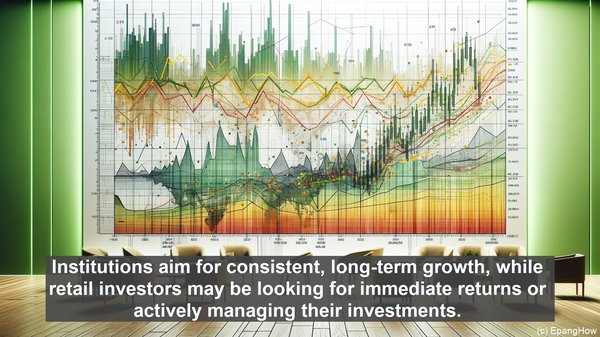Introduction: The Diverse World of Investing
Hello and welcome to our article on the distinction between institutional investors and retail investors. When it comes to the realm of finance, there are various players, each with their unique strategies and goals. Today, we’ll be focusing on two key groups: institutional investors and retail investors. While both contribute to the market, their approaches and impact differ significantly.
Defining Institutional Investors: The Powerhouses of Finance
Institutional investors are entities that pool large sums of money from numerous sources, such as pension funds, insurance companies, and endowments. These funds, often in the billions, are then managed by professionals, including fund managers and analysts. Due to their substantial resources, institutional investors have the advantage of executing extensive research, employing advanced strategies, and accessing exclusive investment opportunities.
The Retail Investor: Individual Participation in the Market
On the other hand, retail investors are individuals who invest their personal funds in the market. They can range from seasoned traders to beginners, each with their own level of experience and risk tolerance. Unlike institutional investors, retail investors typically have limited resources and rely on publicly available information for their investment decisions. While they may not have the same financial might as institutions, retail investors collectively have a significant impact on the market due to their sheer numbers.
Investment Strategies: Contrasting Approaches
Institutional investors often adopt long-term strategies, focusing on stable, blue-chip stocks and diversified portfolios. They may also engage in alternative investments, such as private equity or hedge funds. Retail investors, on the other hand, can be more prone to short-term trading, seeking quick gains. This difference in approach is often due to the varying goals of the two groups. Institutions aim for consistent, long-term growth, while retail investors may be looking for immediate returns or actively managing their investments.

Market Impact: The Ripple Effect
Given their vast resources, institutional investors can significantly influence the market. A large-scale purchase or sale by an institution can impact the price of a stock or even an entire sector. This phenomenon, known as the ‘institutional effect,’ is closely watched by market participants. On the other hand, retail investors, while individually having less impact, can collectively create market movements. Social media platforms and online forums have further amplified this effect, with retail investors banding together to drive the price of certain stocks or assets.

